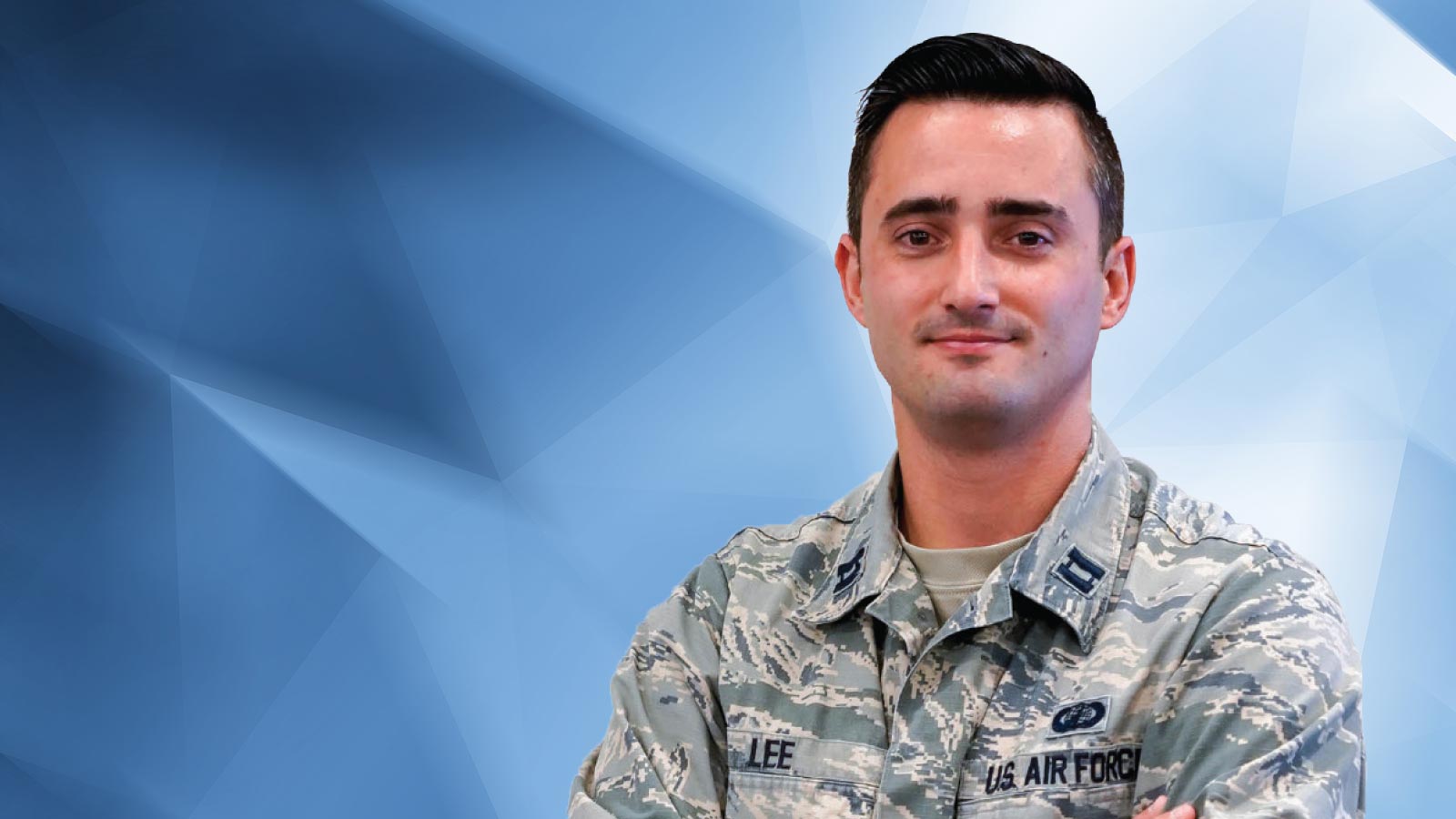Stay Up to Date
Submit your email address to receive the latest industry and Aerospace America news.
Joshua Lee, U.S. Air Force captain and deputy branch chief, Weapon Dynamics, Guidance, Navigation and Control Branch, U.S. Air Force Research Laboratory Munitions Directorate; Eglin Air Force Base, Florida
Joshua Lee spent his childhood in Massachusetts, New Jersey and South Carolina as the son of a U.S. Coast Guard mechanic who taught him how to fix things. As an Air Force officer and engineer, Lee has worked on F-22s at Wright-Patterson Air Force Base in Ohio and built drones at Eglin. Now, Lee helps manage AFRL sections responsible for ensuring weapons fly safely to their intended targets, networking various weapons and research and development of drones.
How did you become an engineer?
Spending time with my dad, who was in the Coast Guard for 21 years, I learned to fix things and look at things from a technical standpoint. I even removed my own training wheels because he was deployed at the time. In high school, I was good at math and technical problem solving. Because my dad was enlisted, we didn’t have a lot of money. I got an Air Force ROTC scholarship, went to Clemson University and got my undergraduate degree in mechanical engineering. After college, I was in the F-22 program office, working on the environmental control system that cools the electronics and also cools and provides oxygen to the pilot. The Air Force sent me to get my master’s degree in aeronautical engineering at the Air Force Institute of Technology at Wright-Patterson. Then, I got blessed with being able to move down to Eglin. For my first two years here, I was the weapon airframe flight test lead. We designed, built and tested new UAV systems to meet weapon requirements. Now I’m helping to develop weapons technology, including making sure the weapon can get to its target and networking quadrotors and bigger drones to fly together in formation.
Imagine the world in 2050. What do you think will be happening in aviation?
I like to think we’re going to go to more autonomous flight, where freight aircraft are essentially UAVs that fly completely on their own. I like to think that eventually the airlines can get to pure autonomous flying, almost like a subway line with no conductor on board. Because of that, I think you’re going to see a large increase in general aviation. As far back as Icarus in Greek mythology, people dreamed of flying. That’s never going to change. People will still want to fly their own planes. I think it’s going to actually pull more people into it. The demand will go up and hopefully the cost goes down.
About Debra Werner
A longtime contributor to Aerospace America, Debra is also a correspondent for Space News on the West Coast of the United States.
Related Posts
Stay Up to Date
Submit your email address to receive the latest industry and Aerospace America news.




